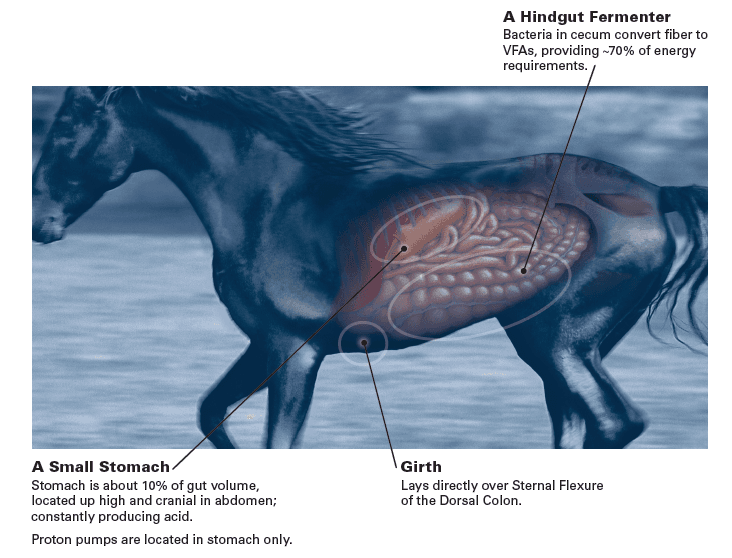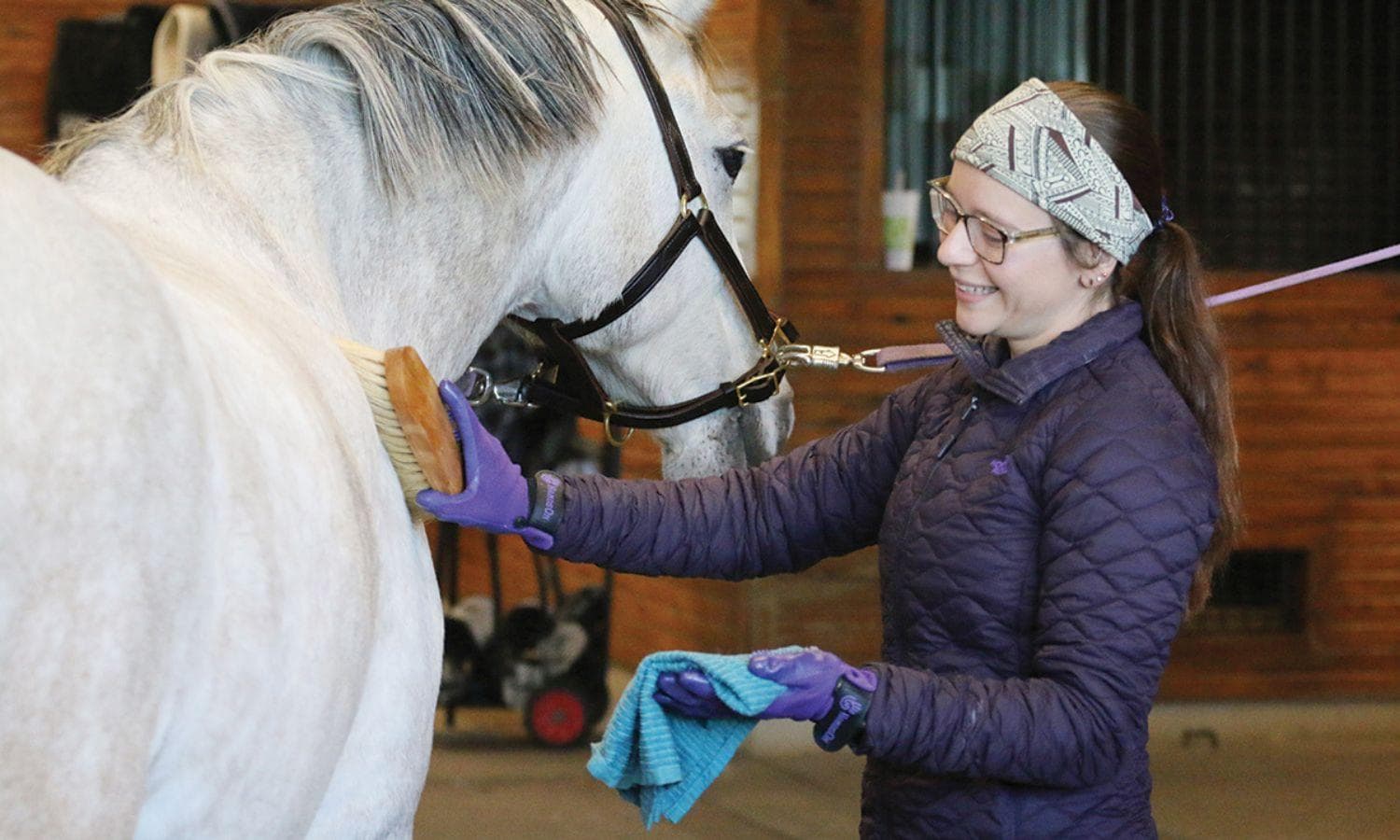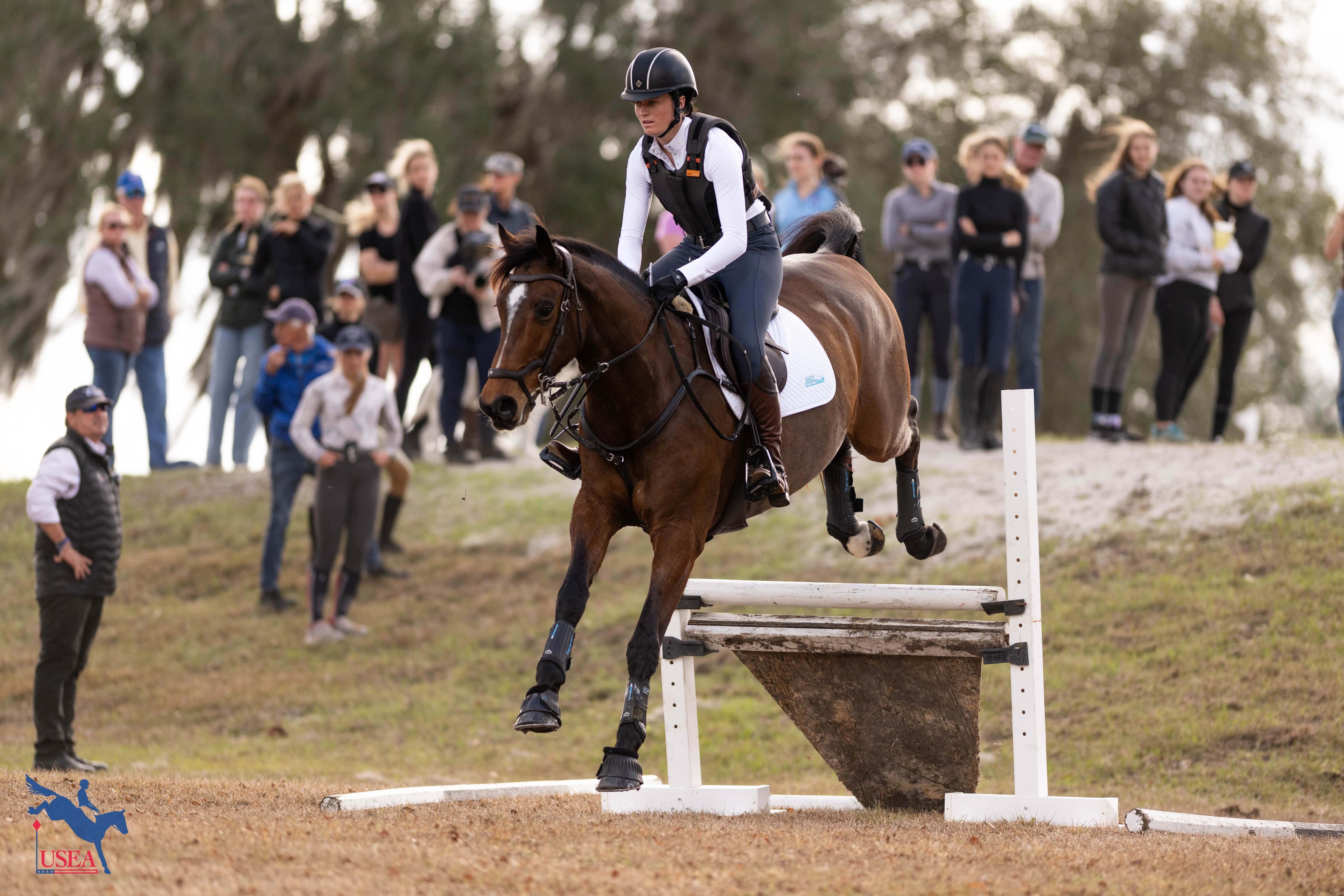Your Horse Ulcer-Free Pt 1: Overview of Equine Ulcers

What horse owner, trainer, rider, or breeder isn’t looking for a happy, healthy horse? Horses that perform better, behave better, sell better, and even incur fewer vet costs? Unfortunately, the reality is that horses rarely are perfectly happy and healthy. And for many horses, the root of their problems begins in the digestive tract. Did you know that studies have shown pervasive instances of ulcers in horses? It has been shown that:
- About 90 % of racehorses have gastric ulcers as reported in published studies
- 97% of performance horses have gastric and/or colonic ulcers as found in our own peer-reviewed published study.
- 37% of leisure horses have gastric ulcers
Those are some awfully staggering numbers – and a lot of uncomfortable, irritable, sick horses. There’s a lot of conventional wisdom out there about diagnosing and treating ulcers – yet ulcers continue to be a prevalent problem for horses. In order to keep your horse at its healthy best, it’s important to understand the signals your horse is giving you as well as all of the options for treating and preventing ulcers.The “Your Horse Ulcer Free” series will equip you with the knowledge to recognize, treat, and ultimately prevent ulcers in a better, more lasting way. In Part 1: Overview of Equine Ulcers, we’ll fill you in on the basics of equine ulcers, including what they are, how to recognize the signals, and a better method for treatment and prevention.
What Are Equine Ulcers?
Put simply, an ulcer is a lesion in the lining of the digestive tract. There are two types of ulcers: gastric and colonic. Gastric ulcers occur in the stomach while colonic ulcers occur in the hindgut, specifically the colon. While both are lesions in the mucosal lining of the digestive tract, they have different causes, symptoms, and thus treatments. Ulcers can range in severity from mild lesions that heal on their own and don’t leave behind any scarring, to more serious lesions that can cause permanent damage and sometimes even death.
Recognizing Ulcers In Your Horse
Diagnosing ulcers in horses can be tricky. The subtle signs that your horse is experiencing a digestive issue like ulcers can also be indicative of other medical conditions. And many signs of digestive discomfort are often attributed to behavioral or training problems. Here are some of the commonly recognized signs that your horse could be suffering from a gastric and/or colonic ulcer:
- changes in attitude
- poor appetite
- decreased performance and energy
- decline in body condition
And here are some additional ways your horse may signal it has a digestive issue, but that are often overlooked:
- girthiness and sensitivity in the flank area
- stall vices like cribbing and weaving
- unwillingness to work
If you notice any of these symptoms in your horse, it’s important to have your vet check for ulcers so that you can either begin treatment or rule it out as a cause before moving on to other possibilities.
Treating and Preventing Equine Ulcers
Dietary and management changes are the best way to help a horse recover from and avoid future occurrences of ulcers. While there are FDA approved drugs available and usually prescribed, they are only effective on gastric ulcers. And because their function is to stop acid production in the stomach, may actually allow more undigested starch to reach the hindgut creating or exacerbating issues there. Understanding some of the primary reasons horses get ulcers is key to knowing how to prevent them in the first place. The way we feed and care for horses is very different from how they live in the wild, which makes them more prone to digestive issues like ulcers. These are some of the common problem areas:
- feeding 2-3 large meals a day
- large grain/processed feed meals
- limited turnout
- training, travel, and competition
Addressing these root causes is the best way to keep your horse-ulcer free for the long-haul.
Next Up: What You Don’t Know About Gastric Ulcers
Gastric ulcers, or ulceration of the stomach lining, are the most commonly recognized form of digestive issues in horses. We’ll talk about all the possible causes and signs of gastric ulcers as well as the problems with the typical diagnosis and treatment techniques. This article was originally published on the SUCCEED Equine Blog and is used with permission by Freedom Health LLC. SUCCEED® Digestive Conditioning Program® is an official product sponsor of USEF, USDF and USEA. It is produced and distributed exclusively by Freedom Health, LLC, of Aurora, Ohio. The company is focused on finding, perfecting and delivering superior, innovative products that address real and significant health-related issues for animals and the people who care for them.














